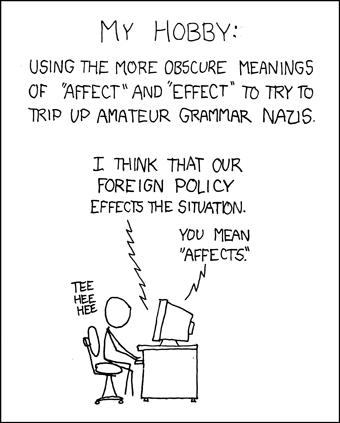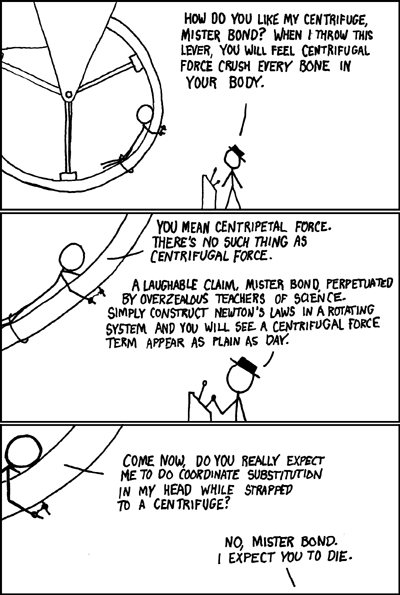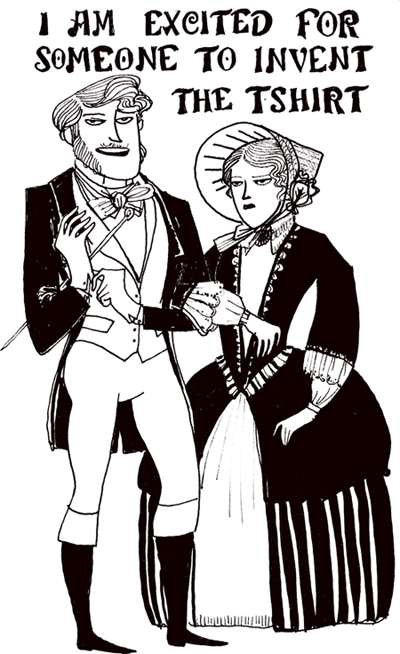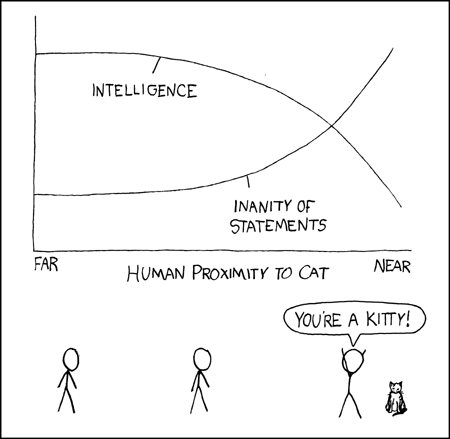As you might guess, webcomics are comics on the web. Unlike the comics you find in the newspaper, webcomics can be created and published by anyone. Also, webcomics are free! These Internet comics are extremely popular, especially with young people who aren't much taken with newspapers anyway. I fondly remember reading Calvin and Hobbes and The Boondocks in the paper, but I have to say that webcomics are a wonderful new take on the old art of storytelling through comics.
F.A.Q.
I can read Garfield and Fox Trot online. Does that make them webcomics?
No, a true webcomic is almost always originally shared online, not through newspapers.
How are webcomics made?
It depends on the artist. Some artists do it the old-fashioned way, drawing their comics out on paper and inking the pictures, then scanning them onto a computer to put online. Some artists draw comics by hand and then color and edit the pictures on the computer. Some artists don't draw at all, simply manipulating existing images on the computer, positioning characters and adding captions to tell the story (this often done using old video game graphics, or "sprites"). Many artists take the middle road, drawing on a tablet connected to their computers. You draw on a tablet with a pen-shaped stylus, and the image goes to your computer as you draw it. Then, you can edit the image using software like Photoshop.
Who makes webcomics?
Anyone can make a webcomic. Some webcomic creators are amateurs who have no formal artistic training, while others are professional artists and animators. Thousands of webcomics inundate the Internet, but a few excellent series have become popular enough to spawn published collections and merchandise. Some webcomic creators become able to support themselves mostly through the success of their webcomics. Thus, the line between professional cartoonists and webcomic artists becomes hazy.
Many webcomic artists, particularly those that become famous, get to know one another. They make references to their friends' comics in their own work, draw "guest strips" for each other, and hang out at conventions.
How often are webcomics posted?
That depends on the comic. Your average webcomic is updated once or twice a week, usually on specific days (Tuesdays and Thursdays, for example). Some comics are updated every day of the week, while others are updated erratically, whenever the artist has time (in these cases, months may go by between updates, causing great suffering among fans). Because webcomics can be created by anyone at any time, some comics might be started and then abandoned, left unfinished by artists who lost the time or interest to devote to their work. Most webcomic sites tell you how often to expect updates in their About section. Sometimes, comic artists take brief breaks to attend a convention or recover from an illness. If they have enough notice, they can usually get other webcomic artists to draw guest strips until they're able to return. That way, fans don't have to go without their favorite comic in the creator's absence.
What age group would work with webcomics best?
I'd recommend high school over middle school when it comes to webcomics, as many webcomics use swear words (some, frequently; some, occasionally). Just choose which webcomics you use wisely and keep in mind that if you introduce students to a comic, they might go investigate the website, which may contain less appropriate comics. I'll indicate which comics are especially clean or PG-13 below.
Some Popular Webcomics:
Written by Jerry Holkins and drawn by Mike Krahulik.
One of the most famous webcomics, Penny Arcade is widely enjoyed for its video game and pop culture humor. It's also one of the longest running webcomics, having begun way back in 1998. The creators were among the first webcomic artists to be able to make a living from their work. The comic stars the creators' alter egos, Tycho and Gabe. (Beware: there's cursing in this comic)
Penny Arcade is updated on Mondays, Wednesdays, and Fridays.
Written and assembled by Ryan North.
Dinosaur Comics seem strange at first, as every single comic has the same clip art format. But the clever, absurd dialogue that changes every day is priceless. T-Rex and his friends Dromiceiomimus (pronounced "droh-MEE-see-oh-MYE-muhs") and Utahraptor ponder life, the universe, and everything. And Batman.
Be sure not to miss the extra jokes and comments that appear when you hold the mouse over the comic!
Dinosaur Comics are updated every weekday.
Written and drawn by Randall Munroe (a former contractor for NASA).
Stick figures have never been so expressive. xkcd (which isn't meant to stand for anything) deals with sarcasm, romance, language, and life, but also includes some math and science jokes that true nerds can appreciate. Sometimes, only true nerds can appreciate these jokes, but most comics are quite accessible. Be sure not to miss the extra jokes and comments that appear when you hold the mouse over the comic!
xkcd is updated on Mondays, Wednesdays, and Fridays.
Jim Davis's Garfield comics modified by Dan Walsh.
Self-described as "a site dedicated to removing Garfield from the Garfield comic strips in order to reveal the existential angst of a certain young Mr. Jon Arbuckle. It is a journey deep into the mind of an isolated young everyman as he fights a losing battle against loneliness and depression in a quiet American suburb." The artist simply removes Garfield and his thought bubbles from the comic, leaving Jon alone and pathetically talking to himself. Much funnier than the original Garfield comic, IMHO. Garfield creator Jim Davis doesn't seem to mind.
Garfield Minus Garfield doesn't seem to have a regular updating schedule, but usually posts new comics 2-3 times a week.
Written and drawn by Tracy J. Butler.
Lackadaisy is absolutely exquisite, possibly the highest quality webcomic around. The author is a professional artist, and it shows. She researches all the historical elements of her Prohibition-era comic so that the clothing, cars, buildings, guns, and other features are realistic and accurate. Did I mention the comic is about anthropomorphic cats? Anthropomorphic cats running an illegal speakeasy? And the cats banter wittily with era-appropriate language? It's fantastic. Easily one of my favorite webcomics.
Lackadaisy is updated whenever the author has time.
Drawn by Katie "KT" Shanahan, who often gets writing ideas from her siblings.
Shrub Monkeys is about a girl and her siblings, based on their real-life escapades, with some funny exaggeration thrown in. The creator is a storyboard artist for animated shows, and her talent is apparent in her hilarious drawings. This comic is great ammunition against the "girls can't be funny" argument.
Shrub Monkeys is updated whenever the artist has time, sometimes as often as once a week.
(You're advised not to Google "Shrub Monkeys," as the artist named the comic not knowing that "Shrub Monkeys" is also a crude slang term.)
Drawn and written by Christopher Hastings.
Dr. McNinja is a ninja. And a doctor. He has a gorilla receptionist and a mustachioed twelve-year-old sidekick. His mentor is a clone of Benjamin Franklin. He HATES pirates. Needlessly to say, his adventures are awesome. (Note: Dr. McNinja does get violent--he IS a ninja, after all--but doesn't really exceed PG-13-level violence.)
Dr. McNinja is updated on Mondays, Wednesdays, and Fridays.
Written and drawn by Tom Siddell.
A marvelous tale mixing mythology, magic, and technology. Set in a mysterious British boarding school, the comic follows Antimony Carver, a girl who can communicate with spirits. Antimony helps ghosts, becomes best friends with a girl genius, tames a crafty fox spirit, and talks with Coyote (yes, that Coyote). The art improves as the comic progresses and the artist benefits from regular practice. This is one of my personal favorite webcomics. It's also a fairly "clean" comic, containing little to no swearing and few suggestive jokes.
Gunnerkrigg Court is updated every Monday, Wednesday, and Friday.
Written and drawn by Jeph Jacques
A comic about an indie guy, Marten, and his friends. This comic frequently makes references to music, but is perhaps best loved for its continuity and interesting character relationships. QC has many sassy female characters and some gay, lesbian, and bi characters as well, empowering these groups with positive portrayals. This comic's characters are in their twenties, so they appeal most to twenty-something audiences. These characters have complicated and often physical relationships, so this isn't the sort of comic to recommend to students. High schoolers may know and love QC, however, so it's useful to know what it's about.
The characters are so popular and well developed, they even have their own Twitter accounts.
Questionable Content is updated every weekday.
Written and drawn by Kate Beaton.
Delightful comics drawn by historian and Canadian Kate Beaton. The artist often draws accurate costumes on her hilarious interpretations of historical and literary figures. Her comments below each comic are often amusing, too. Further proof that girls can, in fact, be very funny.
Hark! A Vagrant is updated whenever the artist has time, which is usually about once a week.
Written and drawn by Kris Wilson, Matt Melvin, Rob DenBleyker and Dave McElfatrick.
A darkly funny stick figure comic. Often, its jokes venture into controversial territory (like when Zombie Jesus shows up). Not for the very young or very easily offended.
Cyanide and Happiness is updated almost every day.
I should also mention a couple sites of note that blur the line between blog and webcomic: The Oatmeal and Hyperbole and a Half. These sites combine pictures, comics, and narration in an effective and hilarious way. The authors sometimes draw comics about their grammatical and literary pet peeves, which could be useful and entertaining in the classroom. I will forever be amused by the idea of the Alot.
For a comprehensive list of webcomics, see Wikipedia. You might enjoy Cracked.com's amusing list of the funniest webcomics, though not all of the comics listed are appropriate for younger students.
How to Use What You Know About Webcomics in the Classroom:
Several comics actually have some content-relevant strips.
Dinosaur Comics has a series of "Literary Technique" strips that (sort of) explain different literary techniques and (definitely) make you laugh. These would be fun in an English class, especially since Shakespeare often makes random cameos in these comics.
Some examples:
T-Rex and Utahraptor explain "in medias res"
T-Rex describes anachronism as "whenever Shakespeare listens to his MP3s"
Foreshadowing according to dinosaurs
and there's even Hamlet: with DINOSAURS!
Dinosaur Comics have also been used to teach foreign languages. Teachers had students write dialogue for blank comics. This was first implemented in an English class in Japan (you can read the Japanese students' comics here). This would be fun to try in any foreign language class!
xkcd is an excellent resource for math and science teachers. Not only does it make those subjects entertaining, but it actually shows how things like graphs don't have to be boring and can, in fact, be useful in illustrating everyday things.
Examples:
Trying to figure out love with an equation
Correlation and causation...maybe
Using math to avoid velociraptors
If you're a math or science teacher and you're not already familiar with xkcd, I highly recommend you check it out! Chances are, you'll end up buying a book, poster, or t-shirt of one of the comic's awesome nerd jokes. It's just that good.

Kate Beaton's Hark! A Vagrant is a goldmine for history teachers.
Examples:
Tesla, the celibate scientist (science teachers who like to teach about important figures would like this, too)
the Campbells act suspicious at Glencoe
Madame de Pompadour tells it like it is
Wu Zetian getting some Asian history in there
Marat loves rubber duckies
Elizabeth I is annoyed by her persistent suitors and loves her neck ruffs
There are also some excellent literary figure comics. My favorites are the ones with Shakespeare and the Bronte sisters (poor Anne!).
You can show these comics to students on overhead projectors or computer projectors, or you can print some out and put them on bulletin boards in your classroom. You could even buy one of the printed collections to keep in your room, though you might want to be careful, as many of the comics have the Internet philosophy of swearing (i.e. you can swear as much as you want as long as you do it "for the lulz").
NOTE: You should always read through comics before using them in class, as many webcomics use curse words freely and sometimes make suggestive jokes.
If you have ambitious and computer-savvy students, they could create their own webcomics as part of a project.
Webcomics represent a fun genre with great possibility.
Next entry: Fanfiction, or "Who is Mary Sue and Why Does Everyone Hate Her?"

























